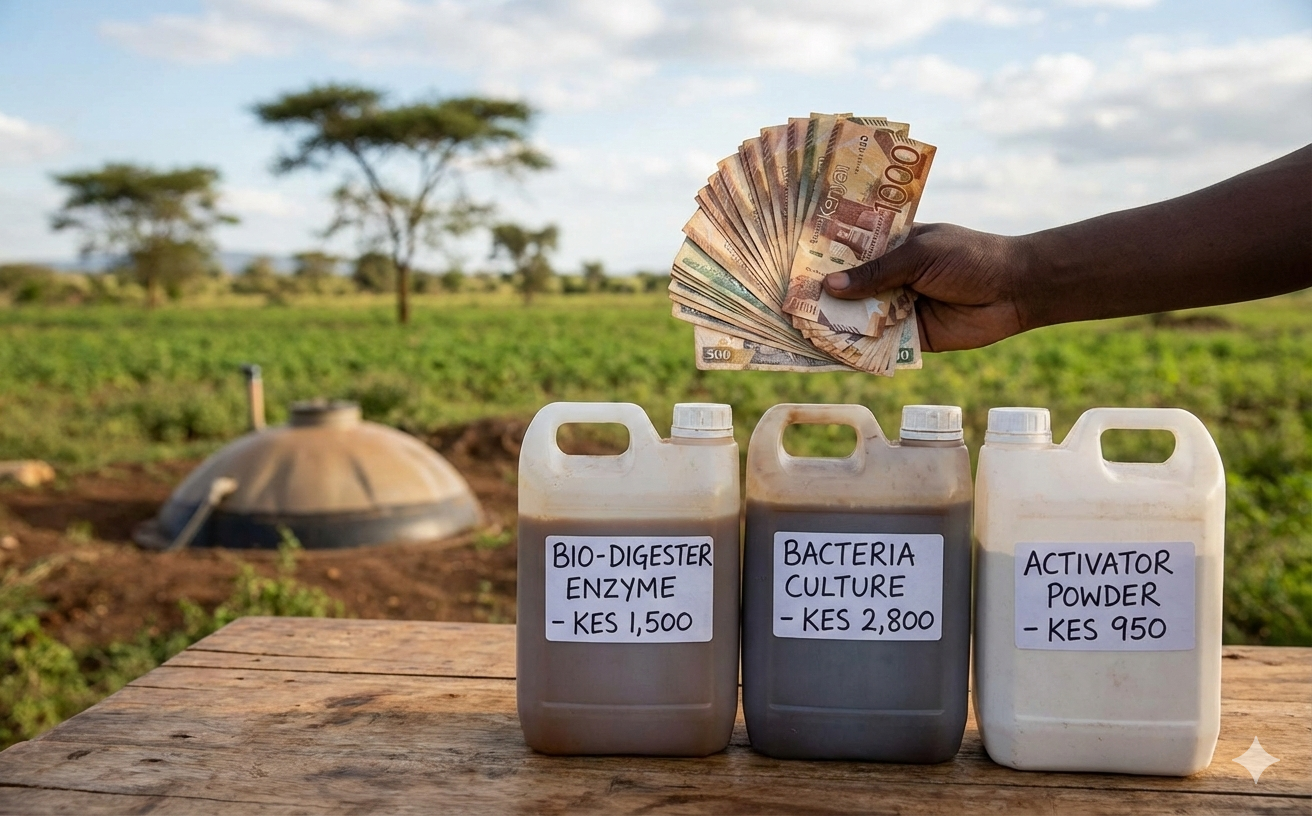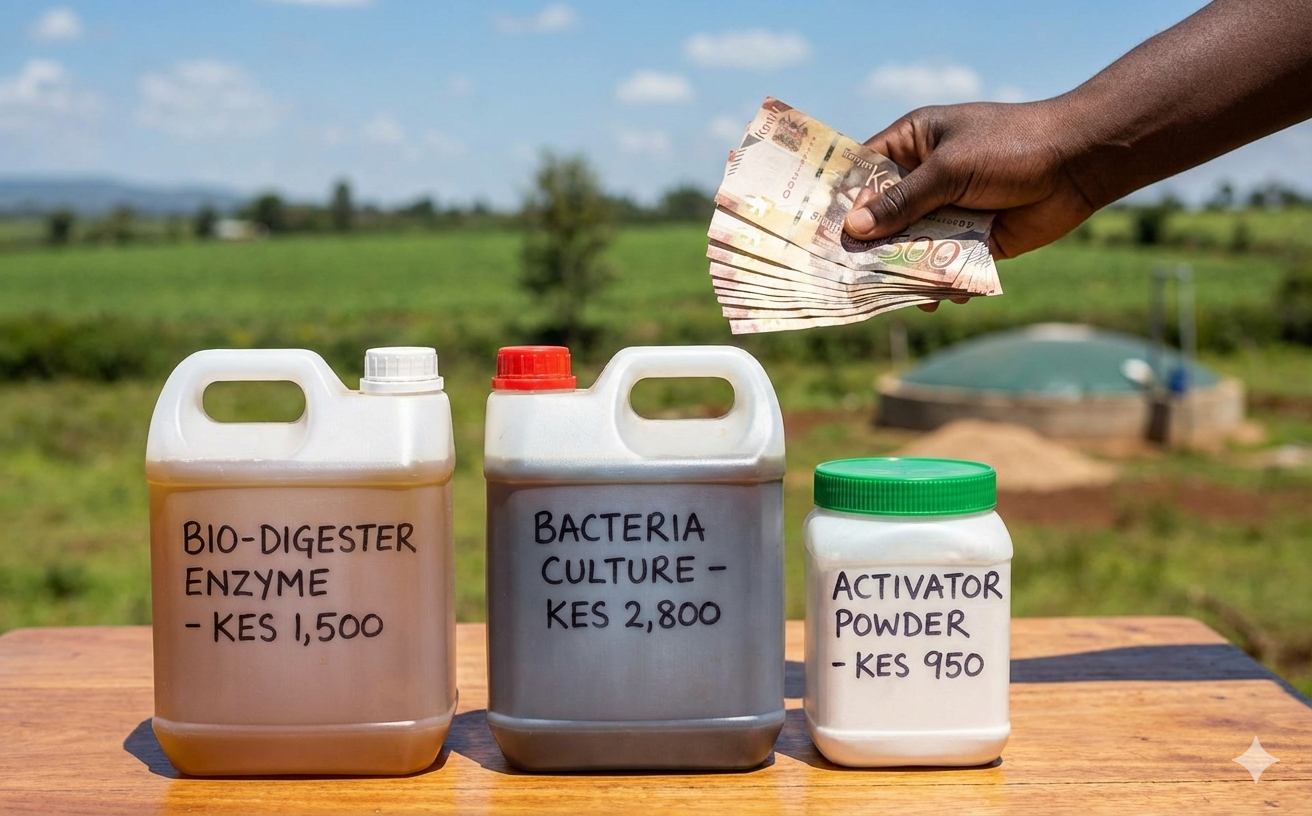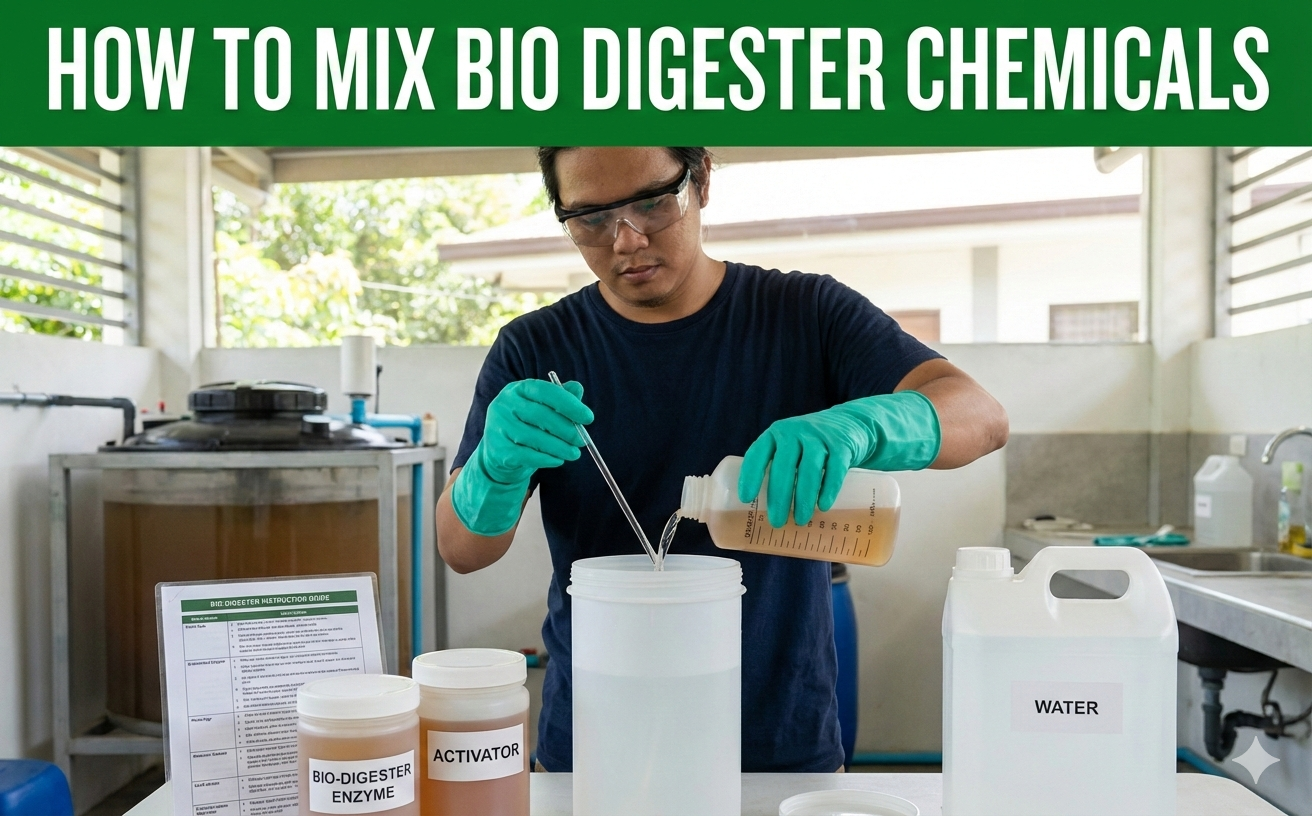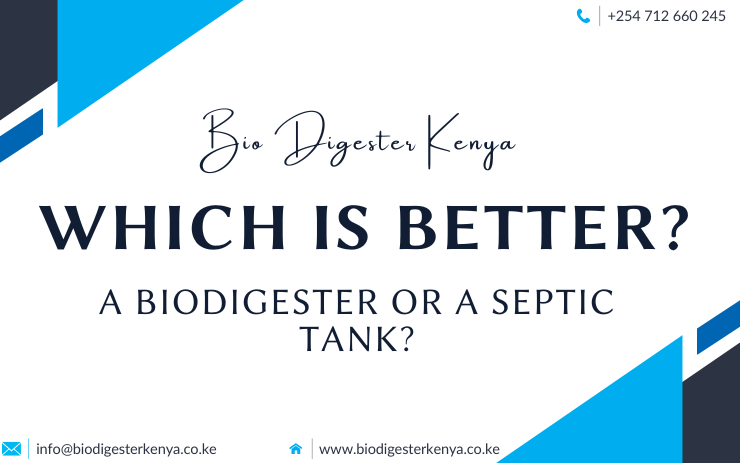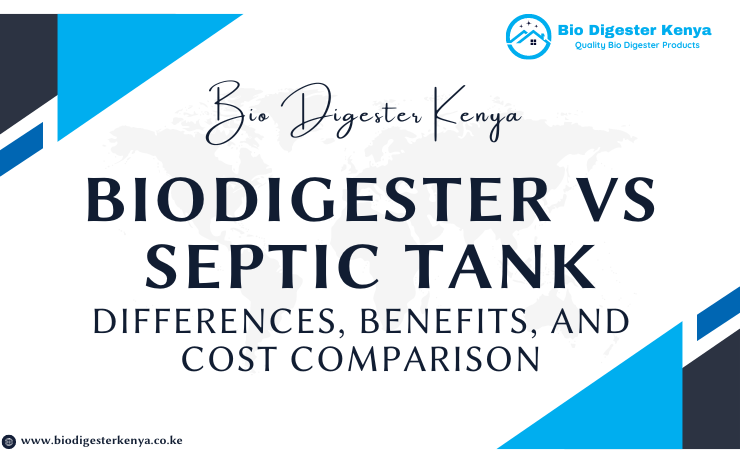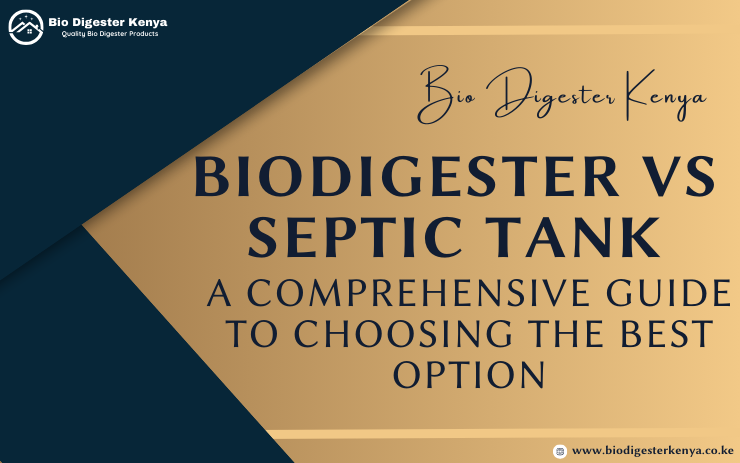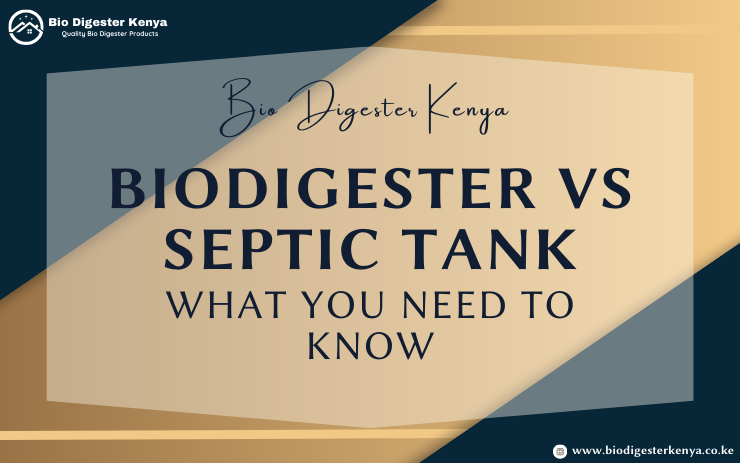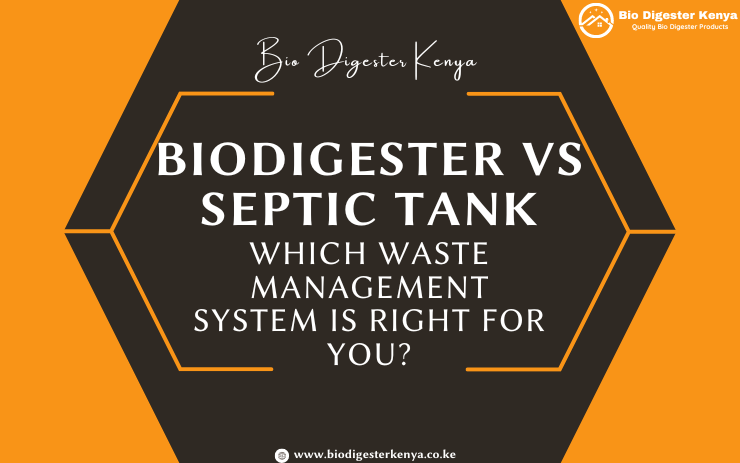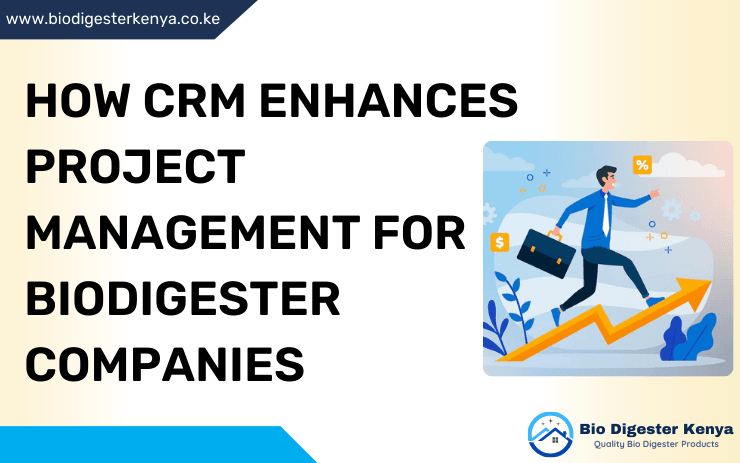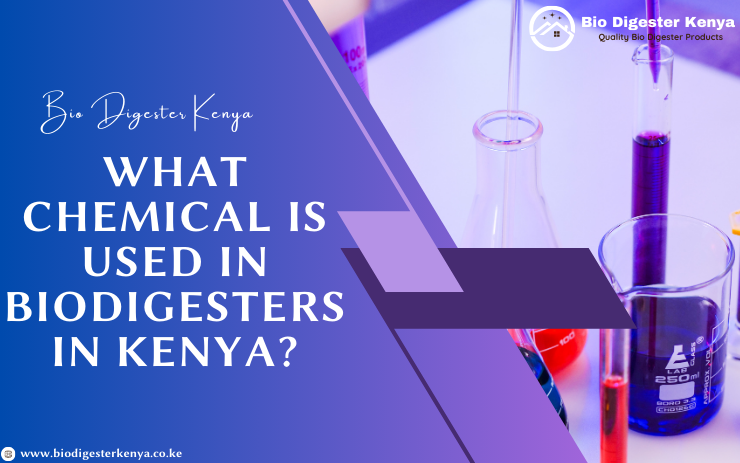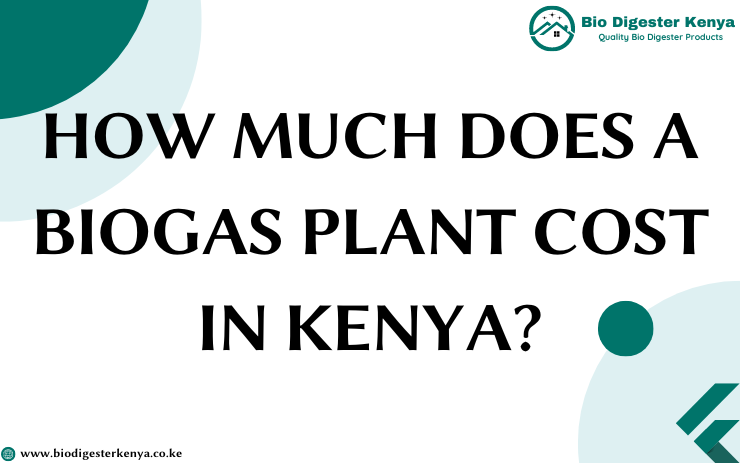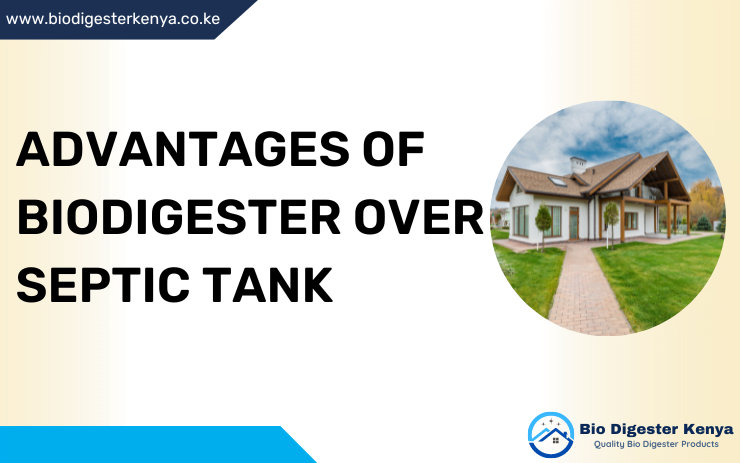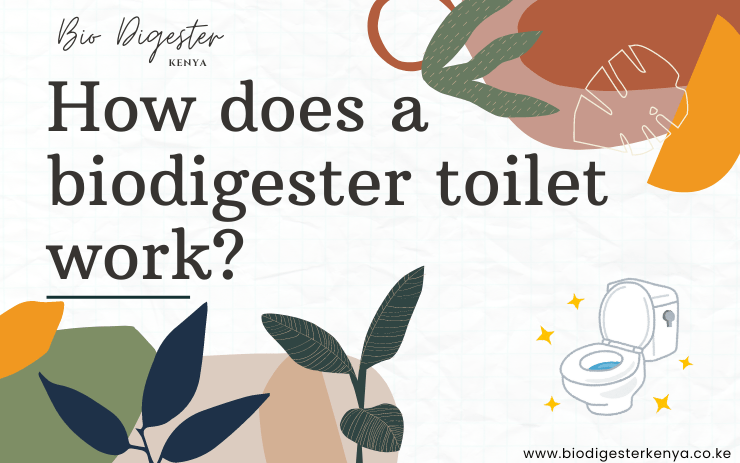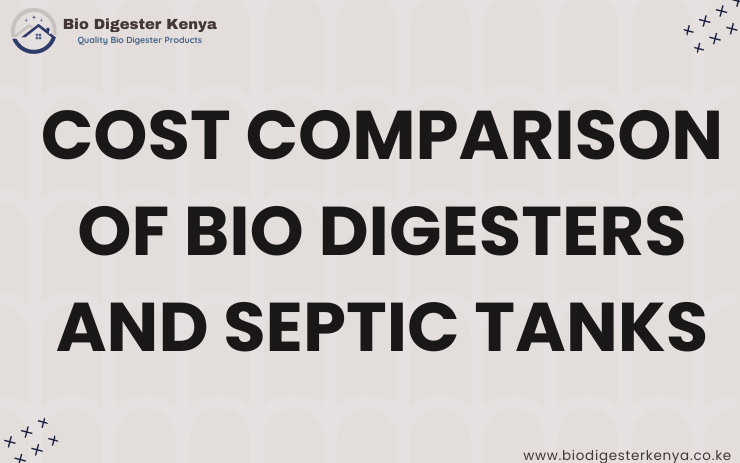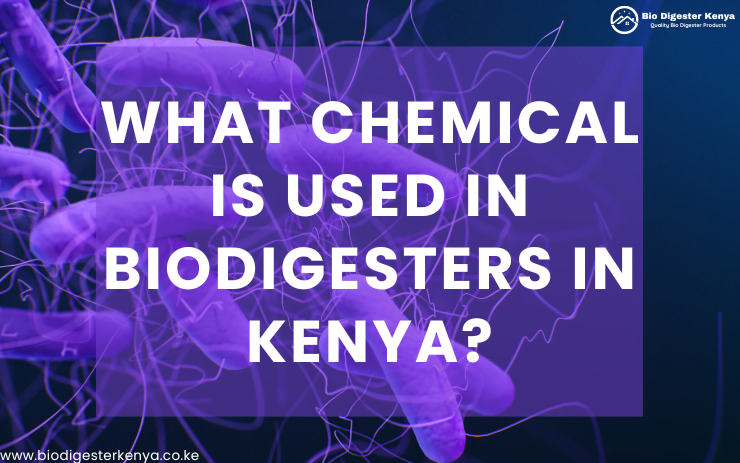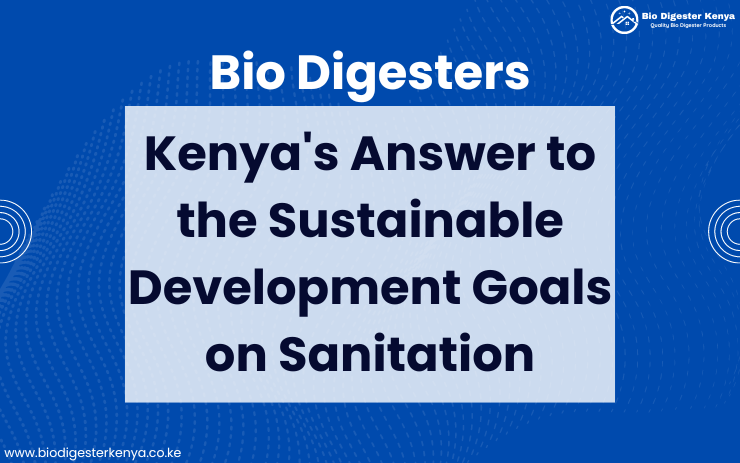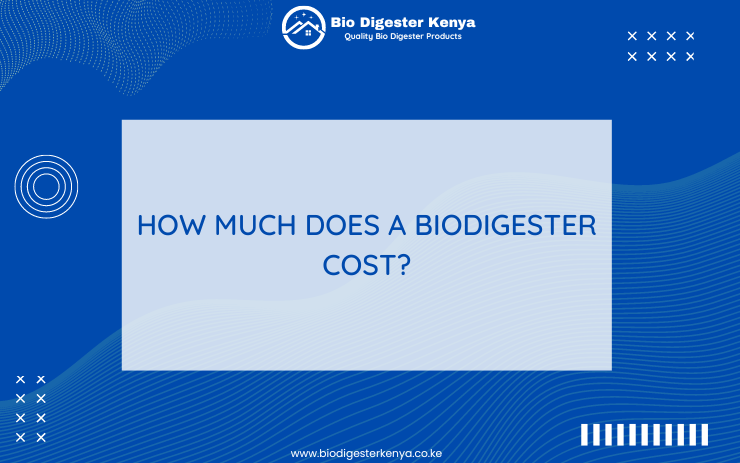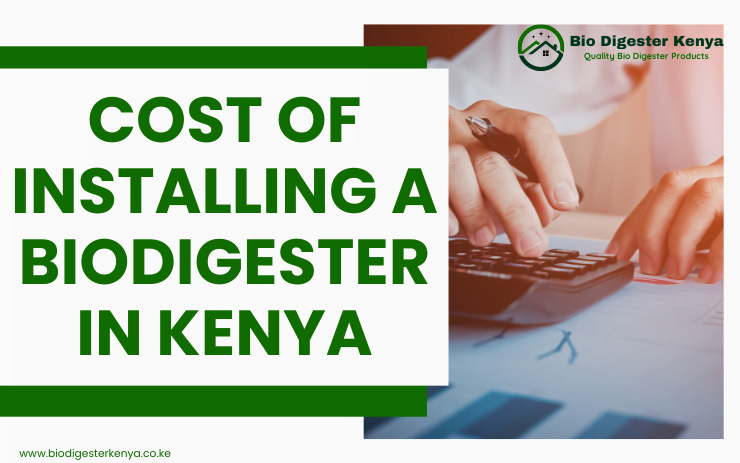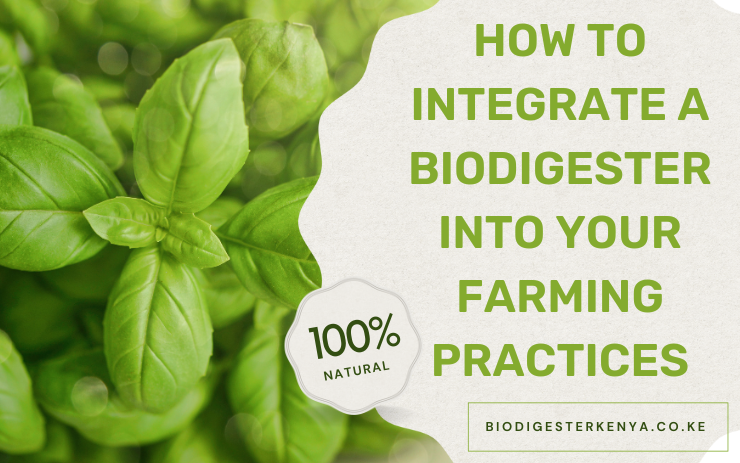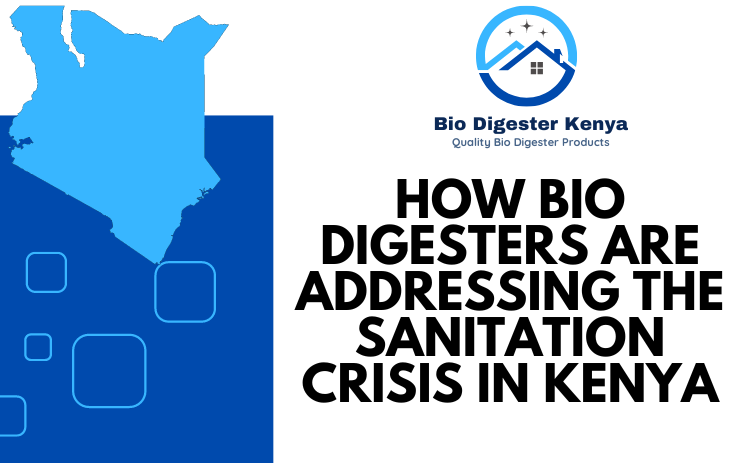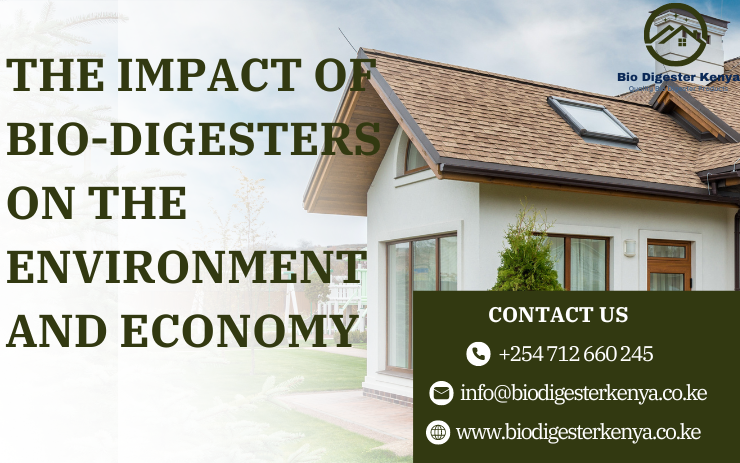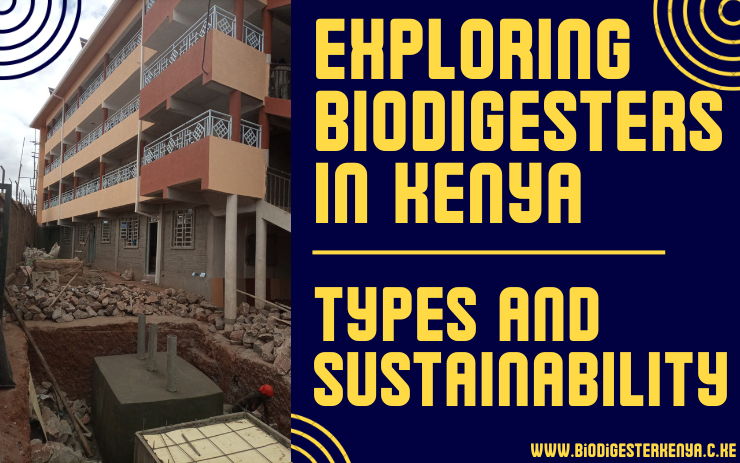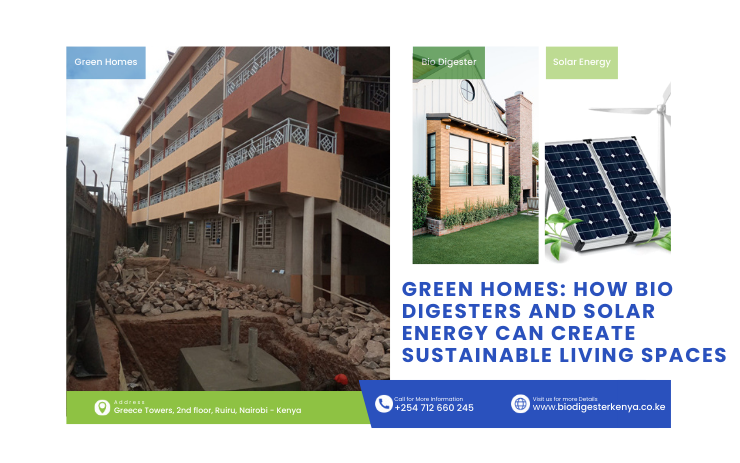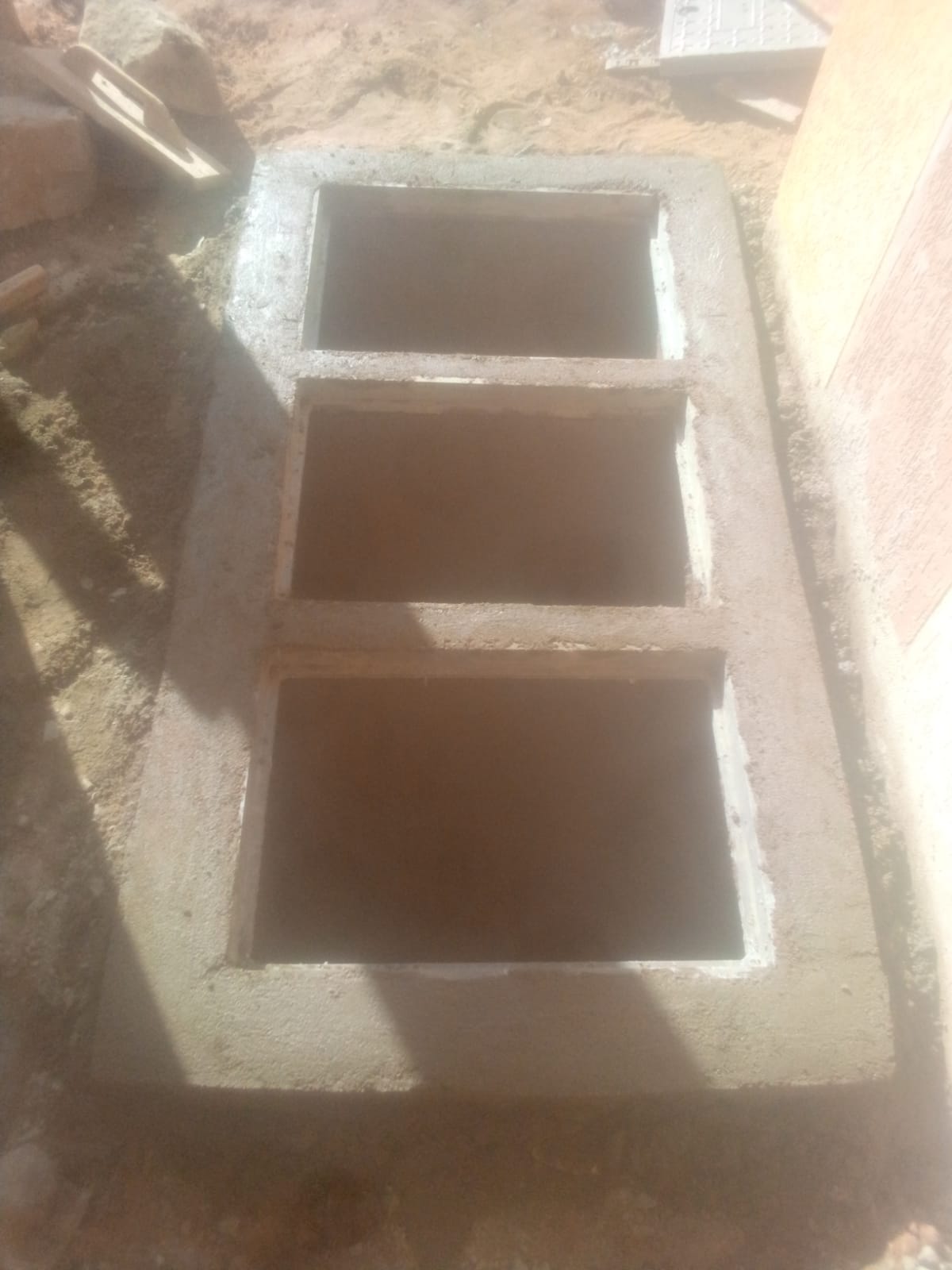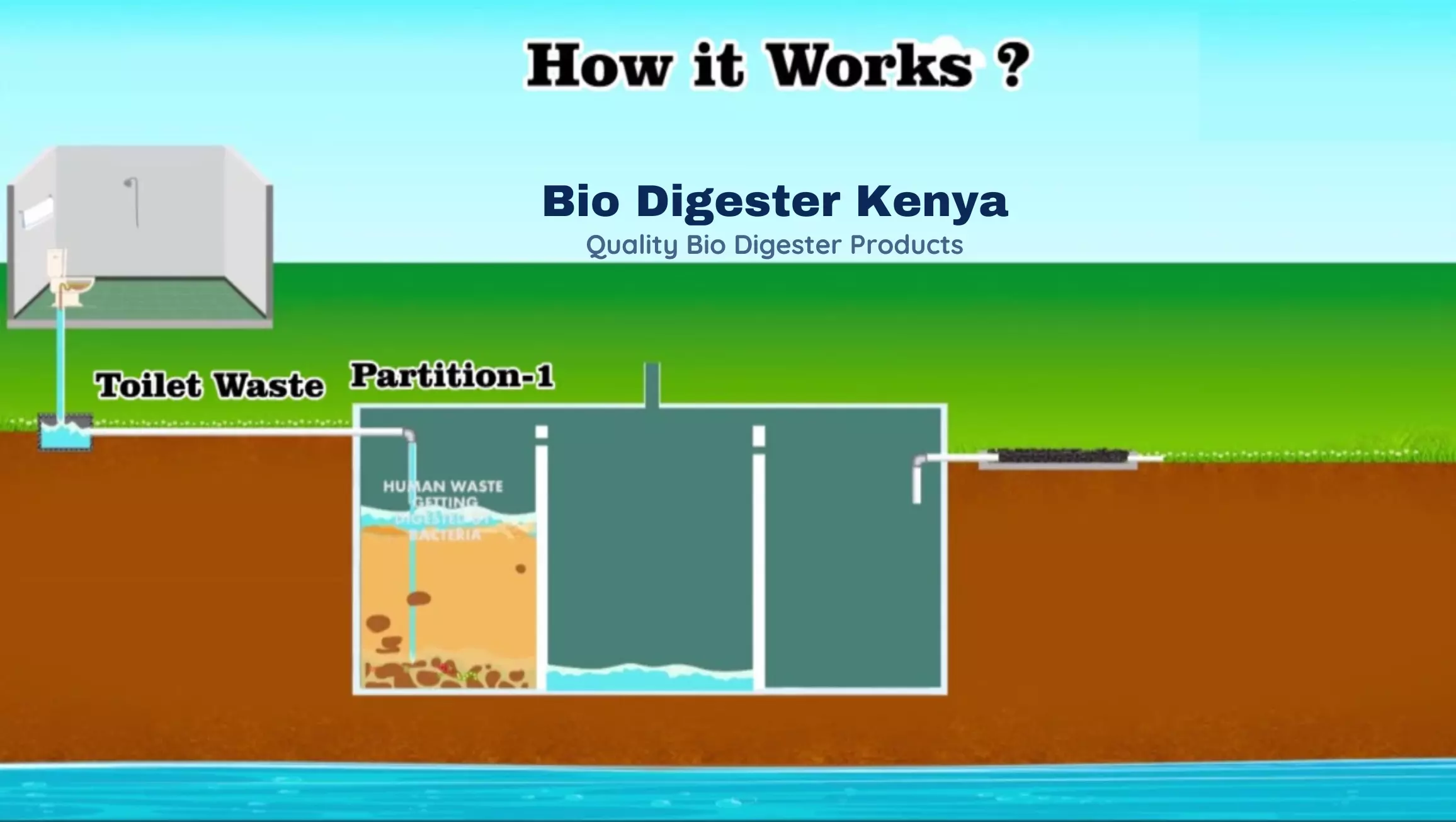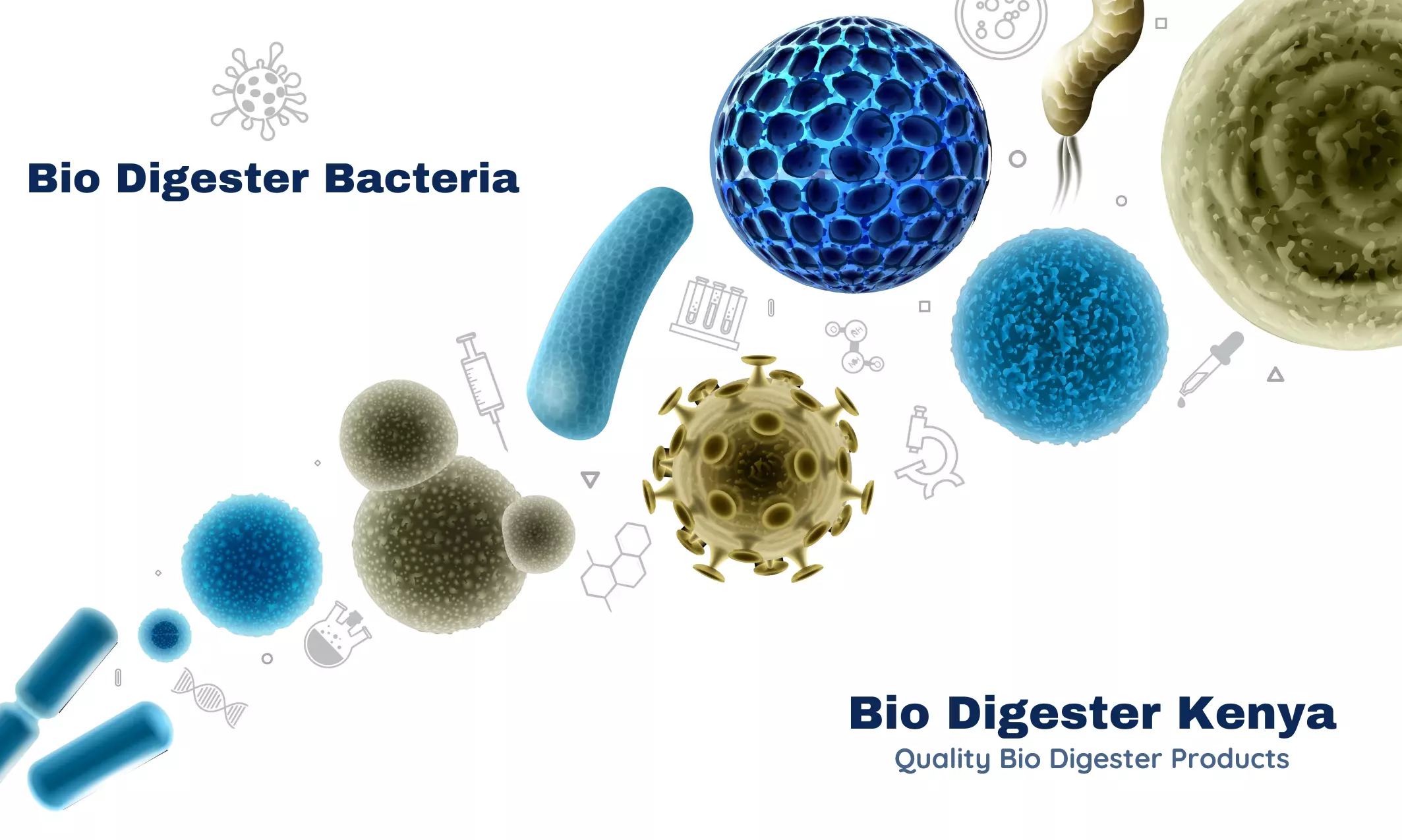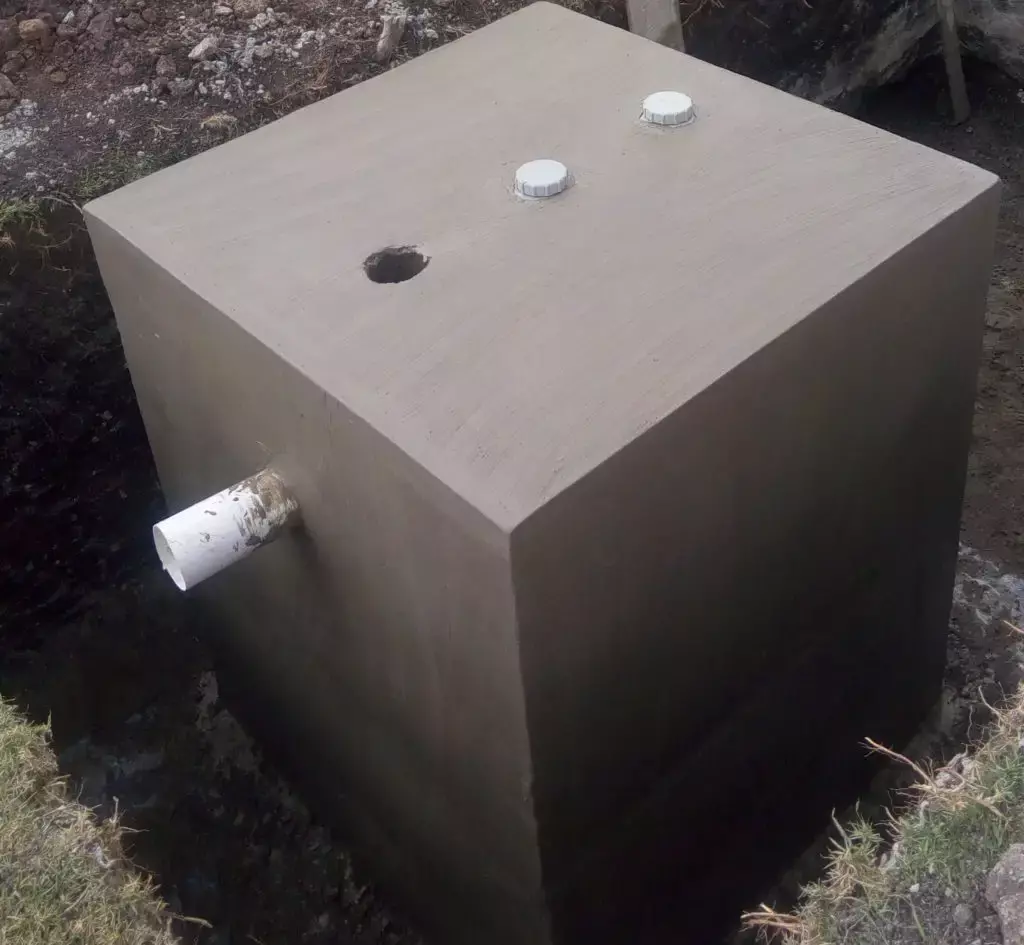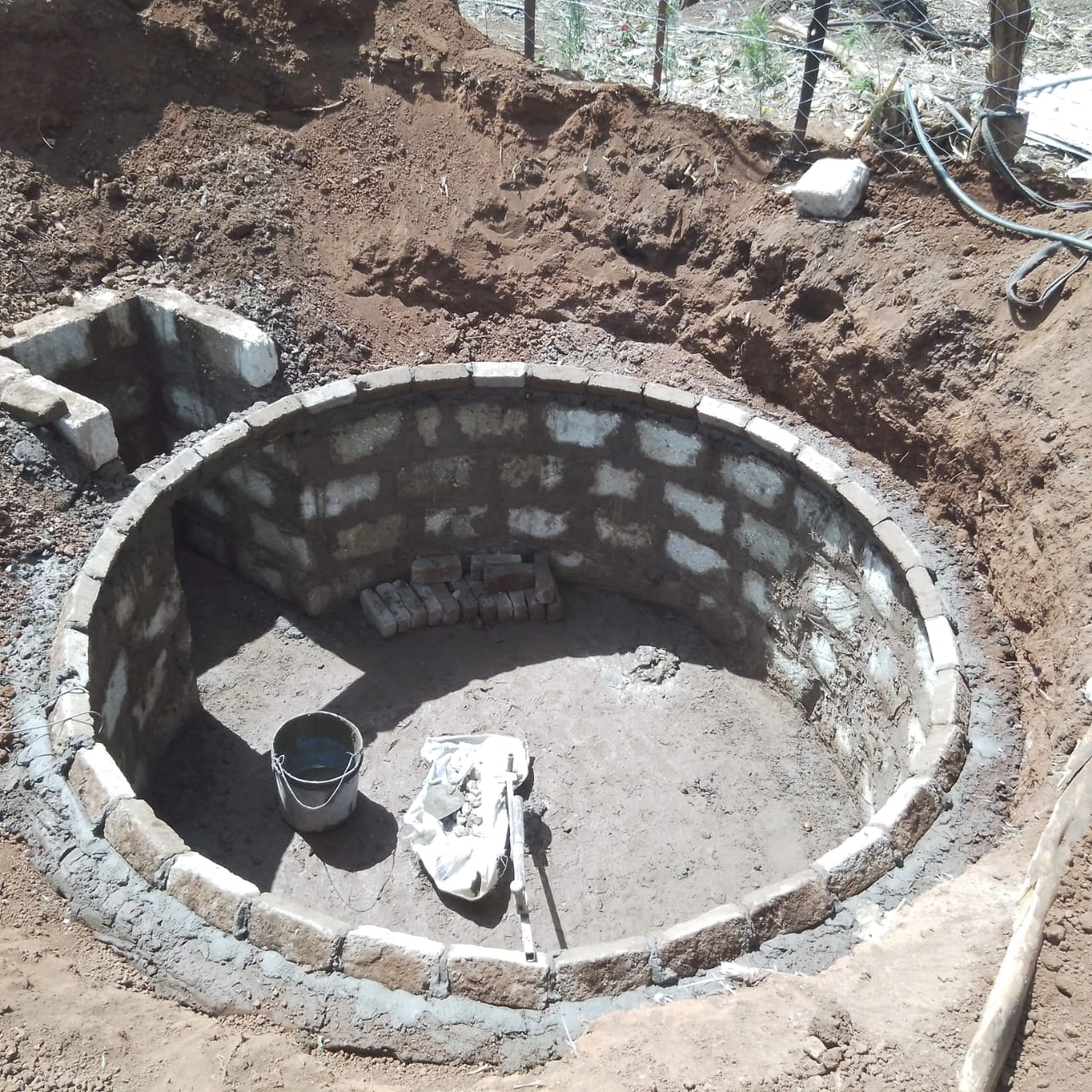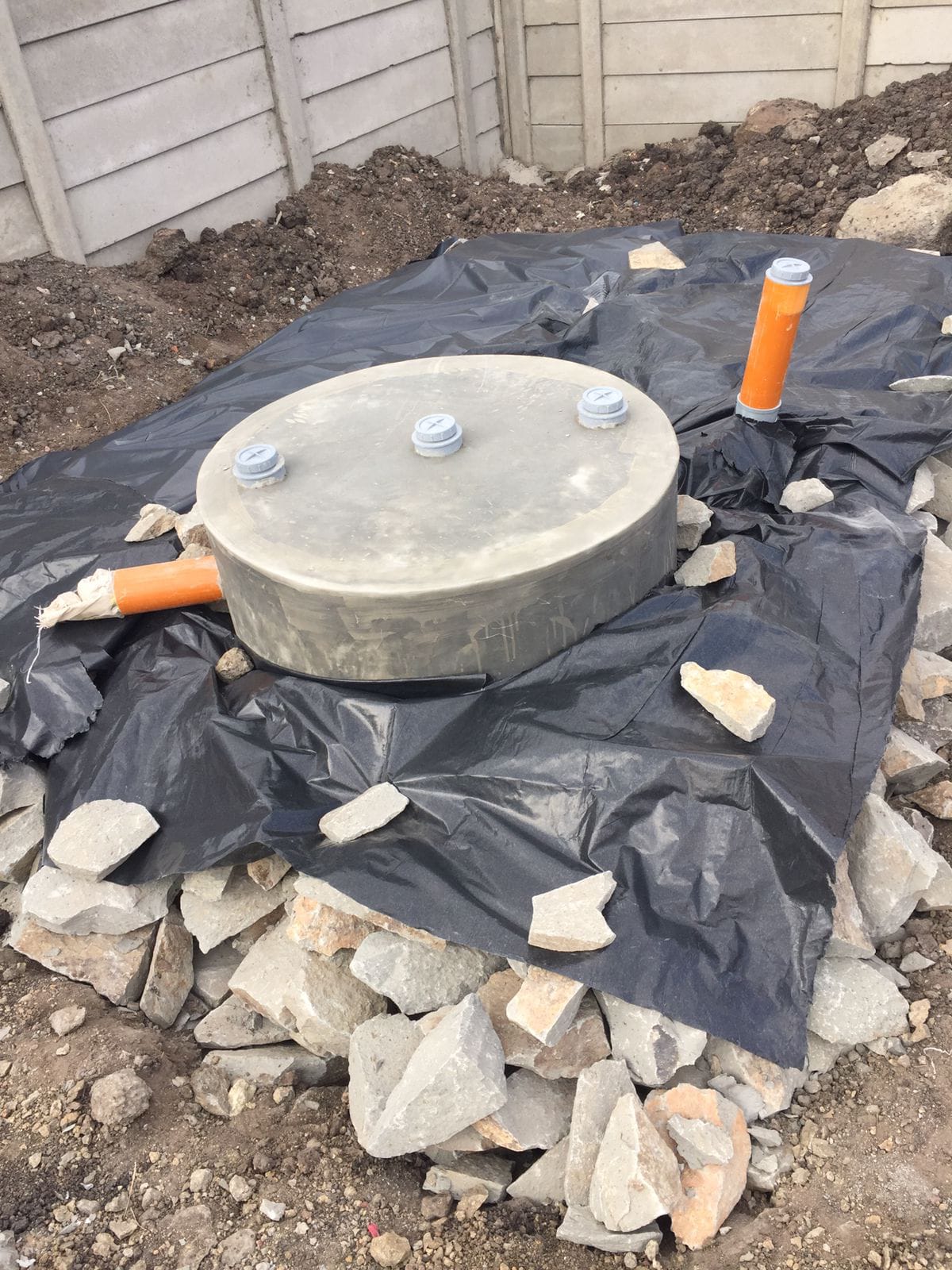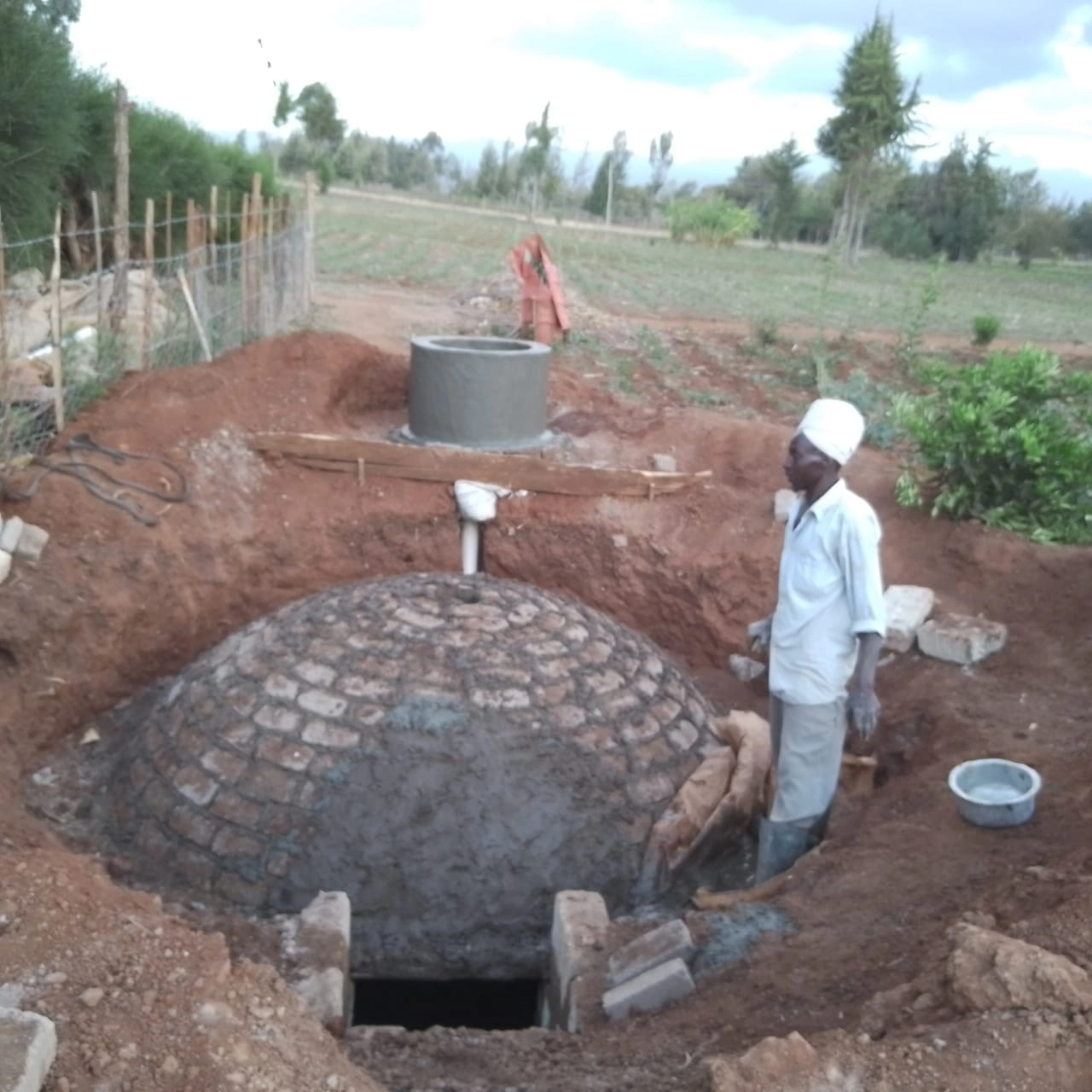In the quest for sustainable sanitation solutions, biodigesters have emerged as a revolutionary technology.
Effective waste management is crucial for maintaining hygiene, environmental sustainability, and public health.
In Kenya, the adoption of biodigesters is transforming how we handle human waste, offering an eco-friendly alternative to traditional septic tanks.
At Bio Digester Kenya, we specialize in designing and installing biodigesters that provide a modern and efficient waste management system for both residential and commercial spaces.
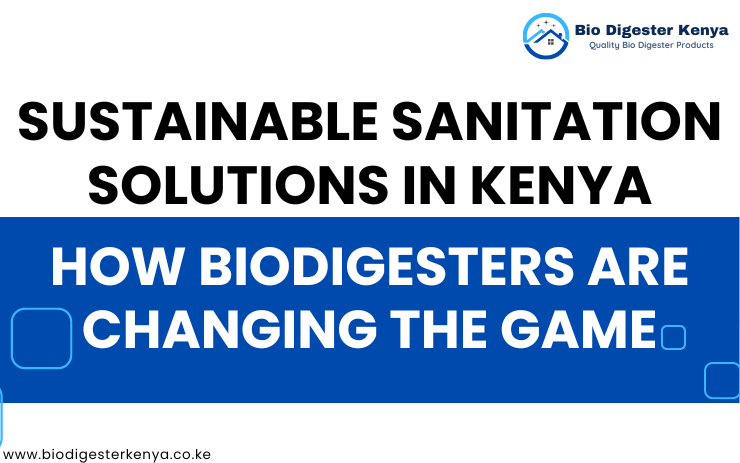
Introduction
Waste management is a critical issue in Kenya, impacting everything from public health to environmental sustainability.
Traditional methods, such as septic tanks and pit latrines, often fall short in addressing these concerns effectively.
Enter biodigesters—a groundbreaking solution that not only manages waste efficiently but also contributes to a cleaner and greener environment.
Bio Digester Kenya is at the forefront of this revolution, providing cutting-edge biodigester systems that transform human waste into safe byproducts like water and biogas.
Whether for residential homes or commercial spaces, our biodigesters offer an innovative approach to sanitation that is both eco-friendly and cost-effective.
Let’s delve into how biodigesters are changing the sanitation landscape in Kenya and why Bio Digester Kenya is your go-to partner for sustainable waste management solutions.
What is a Biodigester?
Definition and Concept
A biodigester is an innovative system that utilizes biological processes to break down human waste into harmless byproducts like water and biogas.
This eco-friendly solution helps reduce pollution and promotes sustainable waste management.
How Biodigesters Work
Human waste is piped into the biodigester, where anaerobic bacteria and biodigester enzymes decompose the waste.
The end products are water, which is safely absorbed into the ground, and biogas, which can be harnessed for energy.
Components of a Biodigester System
The biodigester system includes an inlet for waste, a digestion chamber, an outlet for treated water, and a biogas collection mechanism.
The biodigester enzymes play a crucial role in speeding up the decomposition process.
The Need for Sustainable Sanitation in Kenya
Current Challenges in Waste Management
Kenya faces significant challenges in waste management, including inadequate infrastructure, environmental pollution, and public health risks associated with traditional sanitation methods like pit latrines and septic tanks.
Environmental and Health Impacts of Traditional Methods
Traditional waste management methods often lead to groundwater contamination, spread of diseases, and release of harmful gases.
These issues underscore the need for more sustainable solutions like biodigesters.
Benefits of Adopting Biodigester Systems
Biodigesters offer a host of benefits, including reducing environmental pollution, improving public health, and providing a reliable sanitation solution for both urban and rural areas.
How Biodigesters are Changing the Game
Technological Advancements
Biodigesters represent a significant advancement in waste management technology.
They are designed to efficiently process waste, reduce odors, and produce useful byproducts like biogas.
Efficiency and Effectiveness
Biodigesters are highly efficient in breaking down waste, ensuring that harmful pathogens are neutralized and the byproducts are safe for the environment.
Case Studies and Success Stories
Numerous success stories from communities and businesses in Kenya highlight the effectiveness of biodigesters.
These systems have improved sanitation, reduced environmental impact, and provided economic benefits.
Benefits of Using Biodigesters
Environmental Benefits
- Reduction in Pollution: Biodigesters help reduce soil and water pollution by safely processing waste.
- Groundwater Protection: By treating waste effectively, biodigesters prevent groundwater contamination, ensuring clean water supplies.
Economic Benefits
- Cost Savings Over Time: Although the initial installation cost may be higher, biodigesters save money in the long run through reduced maintenance and operational costs.
- Job Creation: The adoption of biodigesters creates jobs in installation, maintenance, and production of biodigester enzymes.
Social Benefits
- Improved Public Health: By providing a safe and hygienic waste management solution, biodigesters help reduce the spread of diseases.
- Enhanced Quality of Life: Cleaner environments and better sanitation contribute to an improved quality of life for communities.
Installation and Maintenance of Biodigesters
Initial Installation Process
Installing a biodigester involves site assessment, system design, and construction.
At Bio Digester Kenya, we ensure a seamless installation process tailored to your specific needs.
Ongoing Maintenance Requirements
Biodigesters require minimal maintenance compared to septic tanks. Regular addition of biodigester enzymes and occasional checks ensure optimal performance.
Comparison with Septic Tanks
Unlike septic tanks, biodigesters are more efficient, environmentally friendly, and require less frequent maintenance.
Bio Digester Enzymes
Role of Enzymes in Biodigesters
Biodigester enzymes are crucial for the efficient decomposition of waste.
They accelerate the breakdown process and ensure complete digestion of organic matter.
How They Work
These enzymes catalyze the decomposition of waste, converting it into water and biogas.
This process is faster and more efficient than traditional methods.
Benefits of Using Bio Digester Kenya’s Enzymes
Our biodigester enzymes are specially formulated for maximum efficiency.
They ensure complete breakdown of waste, reduce odors, and enhance the overall performance of the biodigester system.
Why Choose Bio Digester Kenya?
Expertise and Experience
With years of experience in designing and installing biodigesters, Bio Digester Kenya is a trusted name in sustainable sanitation solutions.
Quality of Products and Services
We offer high-quality biodigester systems and enzymes that guarantee efficient waste management and long-lasting performance.
Customer Testimonials
Our satisfied customers attest to the effectiveness of our biodigester systems and the professionalism of our services.
Environmental Impact of Biodigesters
Reduction in Greenhouse Gas Emissions
Biodigesters help reduce greenhouse gas emissions by capturing and utilizing biogas, a renewable energy source.
Contribution to Sustainable Development Goals
By promoting clean water and sanitation, biodigesters contribute to achieving the United Nations’ Sustainable Development Goals (SDGs).
Economic Impact of Biodigesters
Long-term Cost Savings
While the initial installation cost may be higher, biodigesters save money over time through reduced maintenance and operational costs.
Increased Property Value
Properties equipped with biodigesters are more attractive to buyers and tenants, potentially increasing their market value.
Social Impact of Biodigesters
Community Health Benefits
Biodigesters improve public health by providing safe and hygienic waste management solutions, reducing the spread of diseases.
Educational Opportunities
The adoption of biodigesters can provide educational opportunities about sustainable practices and environmental stewardship.
Challenges and Solutions in Implementing Biodigesters
Common Challenges Faced
Some challenges include high initial costs, lack of awareness, and resistance to change from traditional methods.
Solutions and Innovations by Bio Digester Kenya
We address these challenges through affordable pricing, public education, and continuous innovation in our biodigester technology.
Comparing Biodigesters to Traditional Septic Tanks
Effectiveness
Biodigesters are more effective than septic tanks in breaking down waste completely and efficiently.
Environmental Impact
Unlike septic tanks, biodigesters have a positive environmental impact by reducing pollution and greenhouse gas emissions.
Cost Analysis
While septic tanks may be cheaper initially, biodigesters offer better long-term savings due to lower maintenance costs.
Future of Biodigesters in Kenya
Potential for Growth and Expansion
With increasing awareness and demand for sustainable sanitation, the future of biodigesters in Kenya looks promising.
Upcoming Technologies and Innovations
Continuous advancements in biodigester technology will further enhance their efficiency and affordability.
Conclusion
Biodigesters are transforming waste management in Kenya, offering a sustainable, efficient, and eco-friendly solution.
At Bio Digester Kenya, we are committed to providing high-quality biodigester systems and enzymes that ensure optimal performance and long-term benefits.
Choose Bio Digester Kenya for a cleaner, healthier, and more sustainable future.
FAQs
What is the lifespan of a biodigester?
- Biodigesters are designed to last for many years, with proper maintenance ensuring optimal performance.
How often should enzymes be added to the biodigester?
- Enzymes should typically be added every few months, depending on the system’s usage and size.
Can biodigesters be used for commercial purposes?
- Yes, biodigesters are suitable for both residential and commercial applications, effectively managing waste in various settings.
What are the safety considerations for biodigesters?
- Biodigesters are safe when used as directed, with no harmful byproducts or emissions. Proper installation and maintenance ensure safety.
How do biodigesters contribute to sustainability?
- Biodigesters promote sustainability by reducing pollution, conserving water, and producing renewable energy in the form of biogas.


